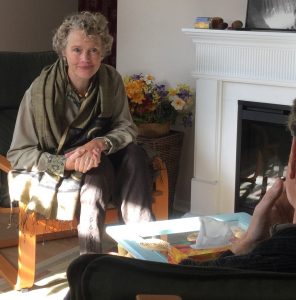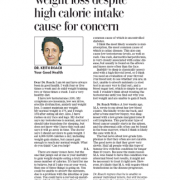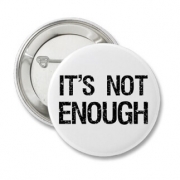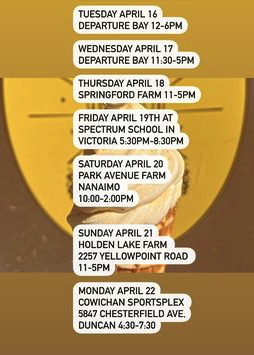Celiac Counsellor’s Corner – Sherry Scheideman, RCC
- COMMENT: I’ve always been a very anxious person, and now that I’ve been diagnosed with celiac disease, I’m wondering if the celiac disease has something to do with it.

Celiac Counsellor’s Corner* is a place where Sherry Scheideman, M.A., Registered Clinical Counsellor, responds to your questions about the emotional and social issues that celiacs face. Diagnosed with celiac disease herself in 2001 in Victoria, BC, Sherry draws upon personal experiences and a Master’s Degree in Counseling to support you in transcending this ‘life transition’ and turning it into an opportunity to live your best life – ever.
- Have you been struggling to adjust?
- CLICK HERE to leave a comment or ask Sherry a question
- Her replies are posted every Monday at 1pm PST on facebook.com/TheCeliacScene
 RESPONSE:
RESPONSE:
You’re right that there is a big link between celiac disease and anxiety.
When our gut is irritated or damaged, it sends distress messages throughout our body, which we experience as anxiety. A distressed gut can even cause us to have upsetting thoughts. The gut tells the brain that it is upset, and the brain translates this message into thoughts like, “I can’t handle this,” or “I’m not good enough,” or “Something is going to go wrong,” and so on. We take these thoughts personally, believing that we’re inadequate or a failure, and worrying that we can’t live up to anyone’s expectations or that some kind of disaster is going to happen to us, and so on. This is anxiety.
If we listen to these thoughts as the voice of our gut, however, we can see that the gut is simply telling us that it is having difficulty and needs some special care and attention.
 When we hear the gut’s message without taking it personally, we can simply tend to the needs of the gut. The gut might be saying, “I can’t handle this – I’m not good enough – Something is going to go wrong” because it is being poisoned by gluten or other substances that it can’t tolerate.
When we hear the gut’s message without taking it personally, we can simply tend to the needs of the gut. The gut might be saying, “I can’t handle this – I’m not good enough – Something is going to go wrong” because it is being poisoned by gluten or other substances that it can’t tolerate.
We need to pay attention, figure out what is hurting the gut, eliminate it from our diet, and then stick to that diet to protect our gut. This will calm our gut – and our anxiety.
Even after we eliminate the things that the gut can’t deal with, the gut may need time and attention before it trusts us again. The gut may be so accustomed to feeling uneasy and to sending out ignored messages that it keeps on doing it, like a habit. This can make us anxious, even after we go gluten-free.
The gut might need a lot of tender loving attention to really recover and feel safe, good, and accepted after all those years of unacknowledged suffering.
So, tune in to your anxiety. Listen to it as the voice of your gut.
By taking care of your gut, you may be taking care of your anxiety.
Thank you for sharing. We all learn through your experience.
Sherry
- If you have a celiac-related emotional or social issue you’d like me to address, please leave a comment in the Facebook field below or click here.
- View previous Celiac Counsellor Corners enter ‘Sherry’ into the search field at the top right of this page

“Life happens! Why not love it?”
“Being diagnosed with celiac disease and going gluten-free has challenged me to develop inner resources that I never knew I had, and I’m grateful for that. As a counsellor, I love to help other celiacs find their own gifts within the challenges of the disease, and to facilitate healing. Why not let your celiac disease motivate you to be your best self?”
- About Sherry Scheideman
- What happens in a session?
- Not in Victoria? No Problem. Sherry does Skype
- Be inspired – Sherry’s Blog
- Sherry Scheideman on Facebook
- Contact Form
Sherry writes about the issues that we as celiacs face in Celiac Counsellor’s Corner. The following topics – and more – will be addressed:

- blaming ourselves or feeling guilty for having the disease
- feeling frustrated and sad about all the food we can’t have anymore
- facing social, familial, and workplace difficulties because we can’t eat what everyone else is having
- being afraid we might not be able to get anything safe to eat when we’re out
- having to ask endless questions about food to make sure we can eat it
- having to endlessly refuse offerings of food in order to stay safe
- occasionally getting “glutened” and then enduring not only the illness but possibly also the blame from ourselves
- how to handle gluten-free shaming
In her articles, Sherry will examine how we can feel like victims as we face the issues that celiac disease presents — and then will explore how these issues give us the opportunity to become our best selves as we rise to meet their challenges. We may find that we can even be grateful to celiac disease for giving us the challenges we need.
- As Pema Chodron notes, “When we reach our limit, a hardness in us will dissolve. We will be softened by the sheer force of whatever energy arises – the energy of anger, the energy of disappointment, the energy of fear. That very energy pierces us to the heart, and it opens us. Reaching our limit is like finding a doorway to sanity and the unconditional goodness of humanity.”
- *Information and perspectives provided in Celiac Counsellor’s Corner are intended to provide general information, without independent verification on the part of The Celiac Scene for the accuracy of the information provided to it. The information is specifically not intended to be a substitute for medical diagnosis or treatment by your physician or other health care professional. You should always consult your own physician or other health care professionals about any medical questions, diagnosis, or treatment, especially before trying any diet. The Celiac Counsellor’s Corner does not accept any liability for any injury, loss or damage incurred by use of or reliance on any content contained herein.


















